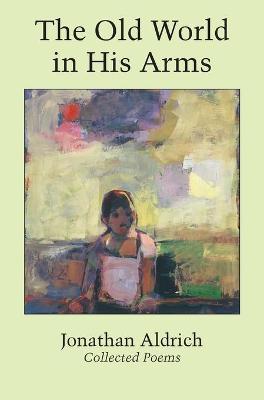The Old World in His Arms: Collected Poems

The Old World in His Arms: Collected Poems
This volume showcases the life work of someone X.J. Kennedy has called "a major poet, commanding in his mastery." Excelling in both lyric and narrative modes, Jonathan Aldrich's poems from the 1960s and '70s seem fresh today. At the start, his voice was authoritative, lively, and unpretentious, his language both sensual and thoughtful. Aldrich's later poetry deepens his style and continues his engagement with themes such as the meaning of time and our responsibility to the past. This "collected poems" reprints in full the detective narrative Wade's Wait, along with generous selections from other books, including his extended lyrical sequence The Ring Road. It also gives us two long poems for the first time: Tivoli and Owed to Finnegans Wake. The final section, "New and Selected," draws mainly from his last books and unpublished late poems, poetry that reveals a writer involved in the lives of family and friends, generally hopeful, but sometimes reflecting on the fragility of our human world.
Although Aldrich composed in many moods, his earliest published poem may stand as a demonstration of his ability to convey the drama of everyday life in language that speeds the mind forward. Using terms from the at times surprisingly violent lawn game croquet, he helps us experience a moment of social confusion, one that many writers know well.
CROQUET LOVER AT THE DINNER TABLE(at a Writers' Conference)
She passes muffins, orders the most remoteand sudden relishes, comments onthe one particular poem you meant to keepentirely undiscussed, or interruptsyour train of silence with a stabof curiosity on what you planto do next year if love or money won'tcome through, as if it were a gameto find you out: to slam you out of court, to rout the field, dislodge the set-up shot, provoke your aim, suggest a change of rulesuntil you feel immeasurably behindbecause her eyes are never wicketed, dead on nobody and poison to the last.
Again and again in his poetry, Aldrich takes us to a familiar world suddenly illuminated in an unfamiliar light. In his early short sequence "A Shaker Girl (c. 1850)," he shows us the youthful struggles of a girl living a simple life in a Shaker village. "Walking Home," surely among the most striking sestinas ever composed, is a quiet meditation on social belonging and spiritual risk. The setting is foreign to us but the internal tension in the girl's narration is thoroughly recognizable.
It isn't possible to speak of an "immature"
PRP: 279.00 Lei
Acesta este Pretul Recomandat de Producator. Pretul de vanzare al produsului este afisat mai jos.
251.10Lei
251.10Lei
279.00 LeiLivrare in 2-4 saptamani
Descrierea produsului
This volume showcases the life work of someone X.J. Kennedy has called "a major poet, commanding in his mastery." Excelling in both lyric and narrative modes, Jonathan Aldrich's poems from the 1960s and '70s seem fresh today. At the start, his voice was authoritative, lively, and unpretentious, his language both sensual and thoughtful. Aldrich's later poetry deepens his style and continues his engagement with themes such as the meaning of time and our responsibility to the past. This "collected poems" reprints in full the detective narrative Wade's Wait, along with generous selections from other books, including his extended lyrical sequence The Ring Road. It also gives us two long poems for the first time: Tivoli and Owed to Finnegans Wake. The final section, "New and Selected," draws mainly from his last books and unpublished late poems, poetry that reveals a writer involved in the lives of family and friends, generally hopeful, but sometimes reflecting on the fragility of our human world.
Although Aldrich composed in many moods, his earliest published poem may stand as a demonstration of his ability to convey the drama of everyday life in language that speeds the mind forward. Using terms from the at times surprisingly violent lawn game croquet, he helps us experience a moment of social confusion, one that many writers know well.
CROQUET LOVER AT THE DINNER TABLE(at a Writers' Conference)
She passes muffins, orders the most remoteand sudden relishes, comments onthe one particular poem you meant to keepentirely undiscussed, or interruptsyour train of silence with a stabof curiosity on what you planto do next year if love or money won'tcome through, as if it were a gameto find you out: to slam you out of court, to rout the field, dislodge the set-up shot, provoke your aim, suggest a change of rulesuntil you feel immeasurably behindbecause her eyes are never wicketed, dead on nobody and poison to the last.
Again and again in his poetry, Aldrich takes us to a familiar world suddenly illuminated in an unfamiliar light. In his early short sequence "A Shaker Girl (c. 1850)," he shows us the youthful struggles of a girl living a simple life in a Shaker village. "Walking Home," surely among the most striking sestinas ever composed, is a quiet meditation on social belonging and spiritual risk. The setting is foreign to us but the internal tension in the girl's narration is thoroughly recognizable.
It isn't possible to speak of an "immature"
Detaliile produsului









